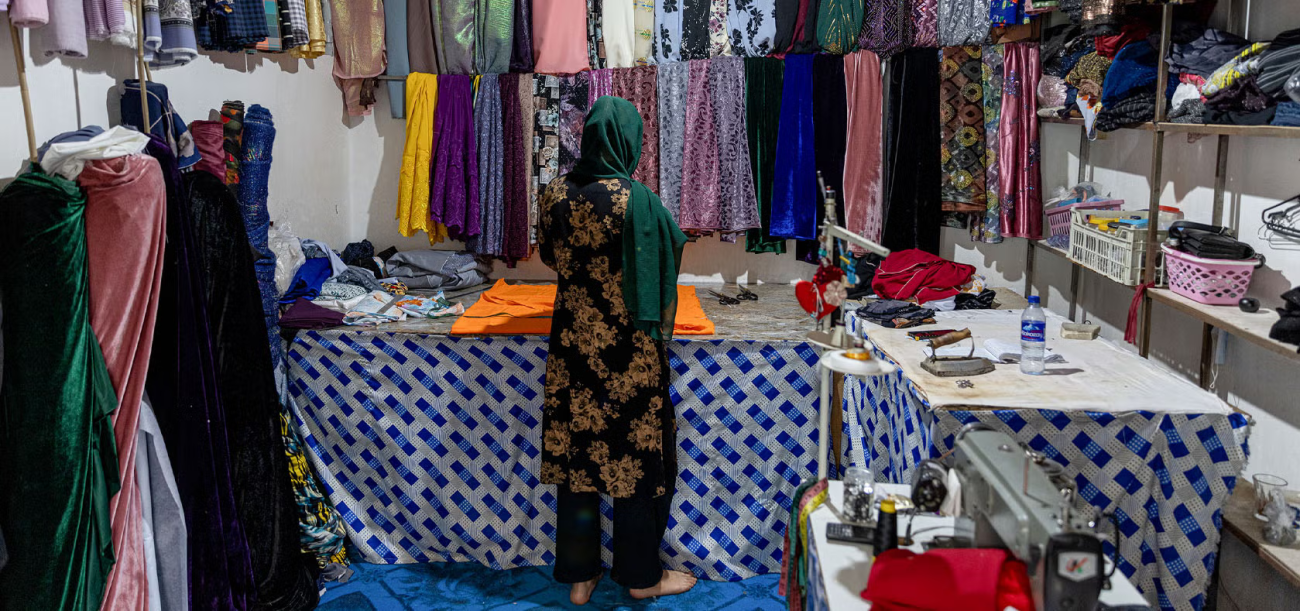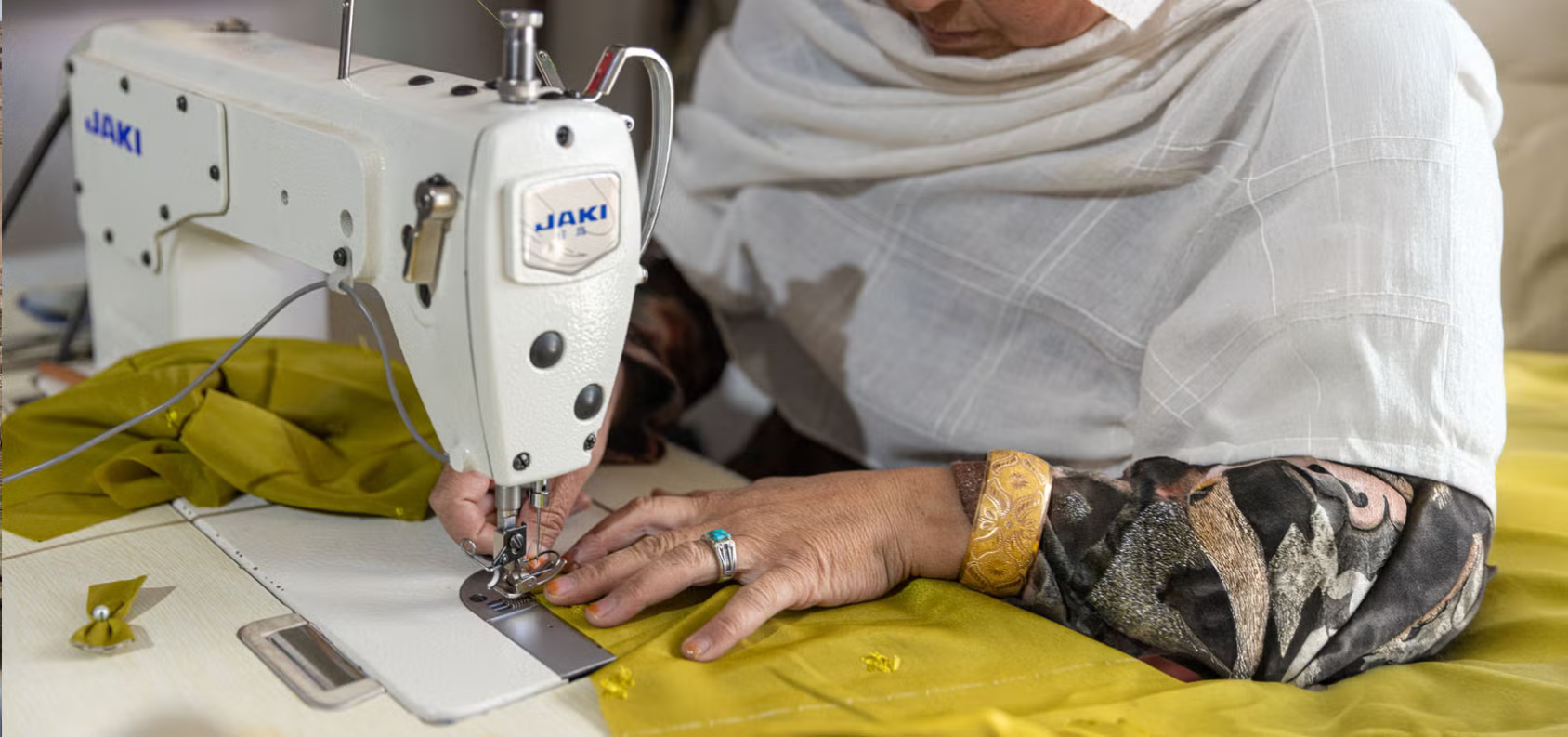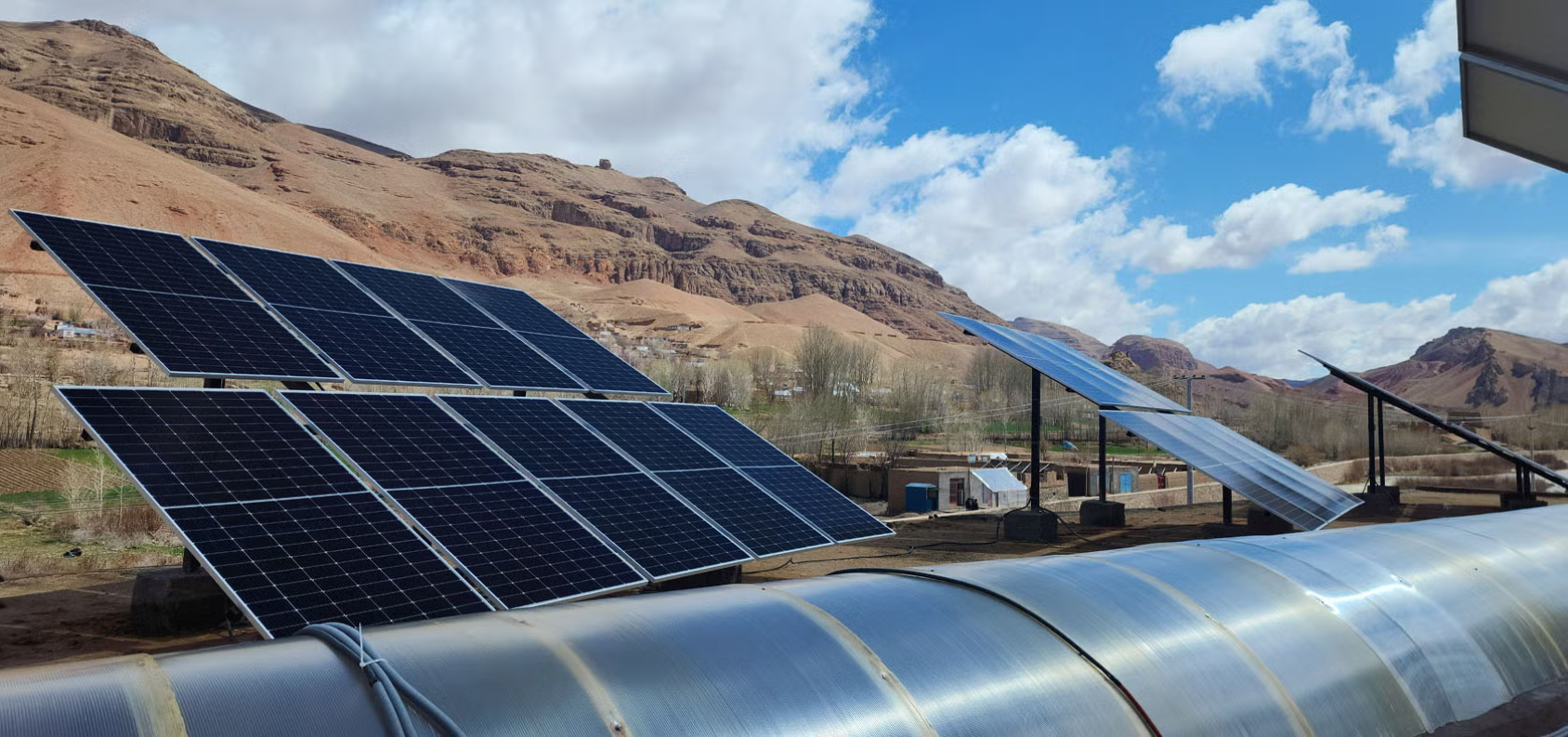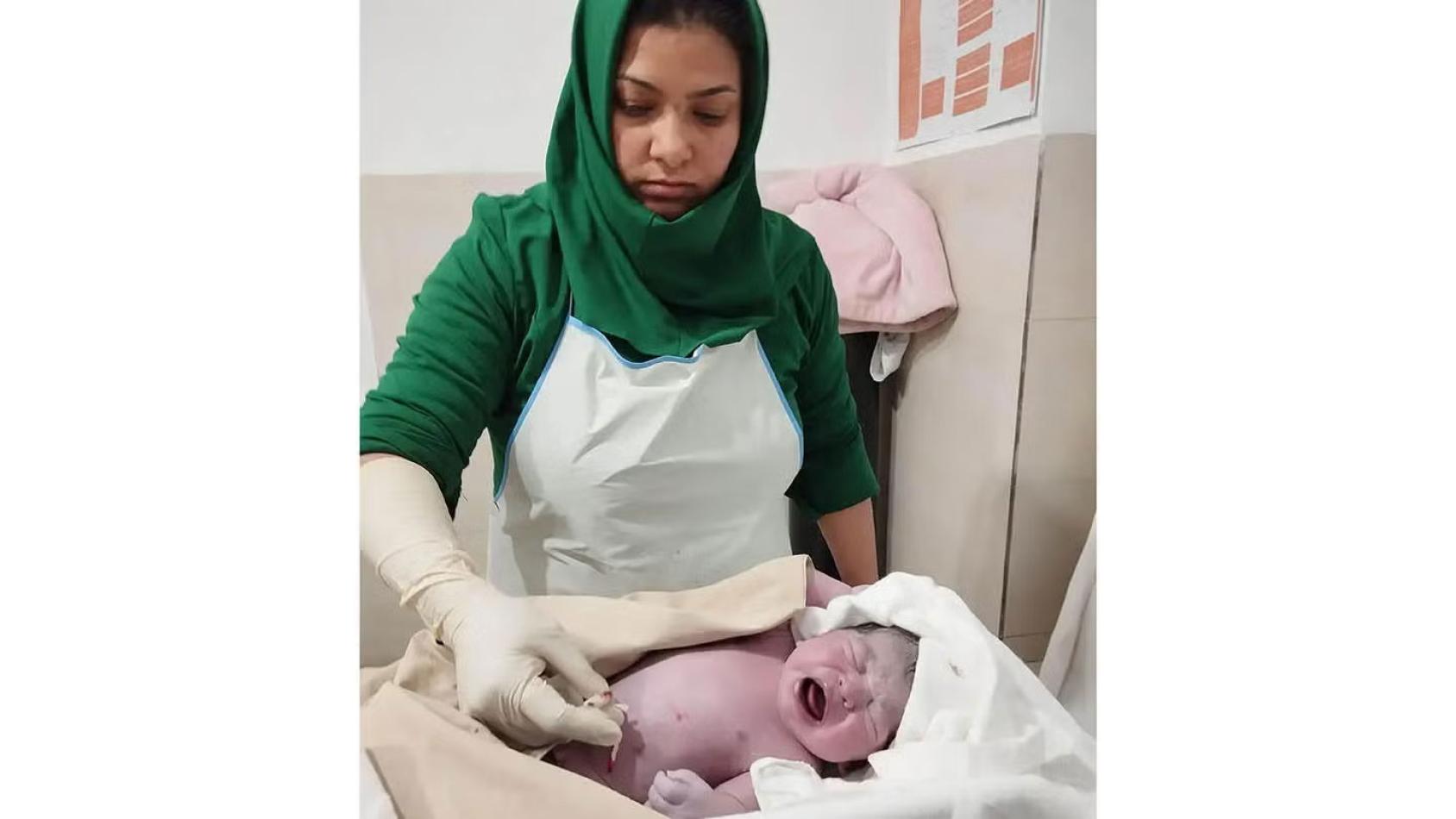Lighting Up Livelihoods: How Clean Energy is Creating Jobs for Afghan Women

As dawn breaks in the heart of Afghanistan’s Bamyan province, a market for women-run businesses opens its shutters to opportunity. Inside one of the solar-lit shops, Sama* leans over a colourful piece of fabric, her hands steady as the gentle hum of the sewing machine grows. A seamstress and entrepreneur, Sama is a familiar face in this market, building a business, a livelihood and a lifeline for other women.
A market transformed
One of two women-exclusive markets in the region, Yawklang Women Entrepreneurs Market houses numerous entrepreneurs and artisans who have been selling and making home-made handicrafts and textiles, some for over a decade. Not long ago, the market sat mostly empty, its vendors struggling with unreliable electricity and declining customers. Today, it offers a meaningful space where Afghan women can shape their future, even amid challenging circumstances.

In just one year, 35 businesses in Yawklang, run by entrepreneurs like Sama, have doubled their income, collectively earning more than $60,000. They now make each product two hours faster, cutting electricity costs by nearly $88,000 and lowering carbon emissions by roughly 22 tons.
The secret to this success? Solar energy and smarter entrepreneurship.
Supercharging good business
Bamyan is a historical site, a rich remnant of the Indus Civilisation and once an important pit stop on the Silk Route. But over the past two decades, conflict and ethnic tensions have taken a toll on the region, slowing the economy with farming and tourism declined. High electricity prices have further exacerbated challenges for communities.
With the installation of an off-grid solar power system by UN Women, and complementary support from other UN partners, entrepreneurs in the market and the region are now able to modernise and expand their businesses. Reliable electricity, along with internet access, is opening new avenues for opportunity. Earlier, without stable power, it was nearly impossible to invest in modern sewing machines, lighting or ironing equipment, let alone keeping shops open for longer periods of time.
Now, Sama has not only started employing seven other women but is also expanding her repertoire to include jacket weaving and embroidery. Online business opportunities have sprung up, allowing her to ship her products to Kabul, other provinces in Afghanistan and overseas.
"Before, without electricity and Internet access, we had no way to explore new designs online,” she said. “Now, my business is growing, revenue is improving, and I am able to involve more women.”

The UN in Afghanistan is enabling entrepreneurs like Sama to access technology, infrastructure, financing and markets—securing livelihoods and a sustainable future for communities rebuilding from crisis.
From enabling access to finance and building entrepreneurial skills to bringing together policymakers, banks, microfinance institutions, employers and trade unions, the UN in Afghanistan is working across multiple levels to drive change.
In the past year alone, over 13,000 micro, small and medium-sized enterprises (MSMEs) have benefited from the collective expertise of UN entities under the leadership of the Resident Coordinator, resulting in nearly 38,000 jobs, particularly for women, youth, returnees, displaced people and other marginalised groups.
By combining job creation with clean energy, infrastructure, digital innovation and women’s empowerment, the UN is helping shape a future in which Afghans can rebuild their lives with dignity and stability.
Afghanistan’s unique context and women’s livelihoods
Afghanistan faces significant challenges as a landlocked, least developed, and crisis-affected country. Geographic isolation, decades of conflict, and limited access to markets have slowed economic growth and pushed millions into extreme poverty. With limited means for local production, the country has had to rely heavily on imports through trade corridors with neighbours like Pakistan and Iran, in addition to international aid and assistance. Small and medium enterprises are vital to reviving local production and creating jobs.
Women-owned businesses play a critical role in this. Despite sweeping restrictions affecting women’s education, employment, and mobility, many women-led enterprises serve as lifelines for families and communities. However, they face barriers, including limited infrastructure and finance.
Green business offers a promising solution to tackle these interconnected problems. Access to reliable, off-grid solar power and other clean energy solutions, like in Bamyan, enables women entrepreneurs to expand their businesses, improve livelihoods and contribute to sustainable economic growth. This empowers women to rebuild their communities with dignity, create jobs, and support essential services like education and healthcare.
Complementary efforts across provinces
This is both the spirit and systematic approach that UN entities are coming together to implement across the country. Similar efforts for women’s entrepreneurship are already underway in Kabul.
In Nangarhar province in eastern Afghanistan, UN Development Programme (UNDP) and UN Refugee Agency (UNHCR), supported by the Special Trust Fund for Afghanistan, are constructing safe homes and revitalizing factories with clean energy, for returnees and displaced populations. 562 homes have now been fitted with solar panels, providing stable and secure shelters, allowing community members to focus on farming and other livelihoods. In another instance, a paper recycling factory, that was shut down due to financial struggles, has restarted operations thanks to solar energy and is providing employment to 300 waste collectors and factory workers.

In Herat Province, UN Population Fund (UNFPA) and UNDP have collaborated to install solar systems for primary health care centers, known as “family health houses”, bringing access to maternal, reproductive, newborn, child and adolescent health services to women, in addition to clean water. As a result, one of the health houses in Taiwara district managed to serve nearly 74,000 members of the community, predominantly women and girls. In particular, pregnant mothers are able to give birth safely and children are able to grow up healthier in Herat’s remote villages.
Global promises, local action
“Investing in sustainable development remains the surest way for communities to rebuild after crisis and thrive in complex settings,” said Resident Coordinator Indrika Ratwatte. “Tackling the root causes of vulnerability and strife requires a joint, integrated effort, moving away from emergency relief to sustainable solutions. The UN’s work in Afghanistan to drive smart entrepreneurship coupled with clean energy and infrastructure is showing us how this is possible.”
As countries gather in Turkmenistan this week for the Third UN Conference on Landlocked Developing Countries, they will focus on the Awaza Programme of Action- a shared commitment to help landlocked developing countries to dismantle structural barriers to their development, to build resilience and to benefit from global growth and trade. Afghanistan stands to gain much from this.
From the halls of decision-making to the highlands of Bamyan, Sama’s story must not remain an exception — it must be the blueprint, in Afghanistan and beyond. With the right investments and transformative policies, Afghanistan stands a real chance to light the way for a thriving and resilient economy.
For more information about the UN's work in Afghanistan, visit afghanistan.un.org
*Name changed to protect identity













